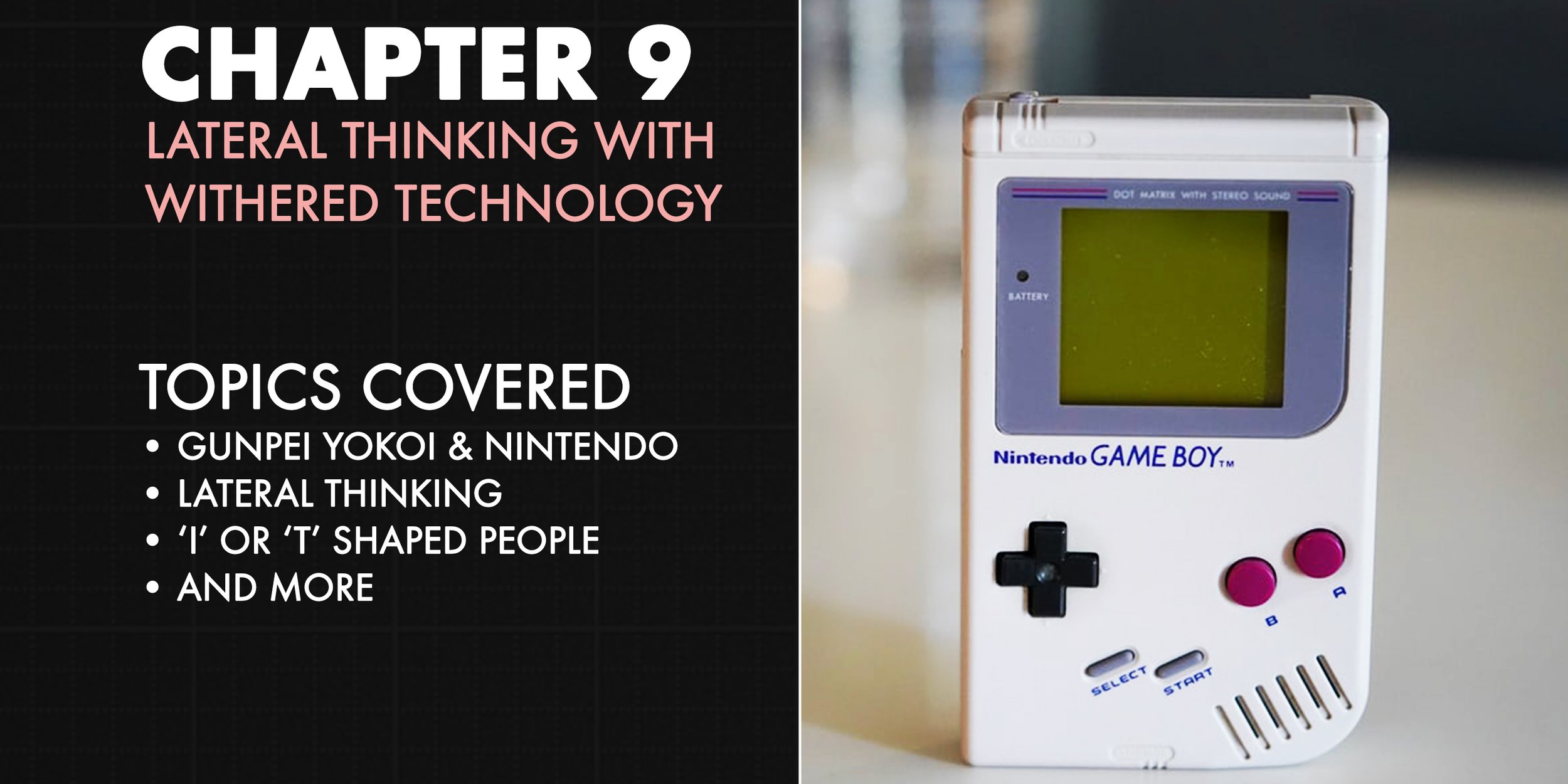Chapter 9 - Lateral Thinking with Withered Technology
Blueprints are our unique take on summaries. Blueprint will help you absorb information quickly and allow for the synthesis of ideas!
The First Book: Range by David Epstein
David Epstein examined the world’s most successful athletes, artists, musicians, inventors, forecasters, and scientists. He discovered that in most fields—especially those that are complex and unpredictable—generalists, not specialists, are primed to excel. Generalists often find their path late, and they juggle many interests rather than focusing on one. They’re also more creative, more agile, and able to make connections their more specialized peers can’t see.
Who should read this?
All books have a thesis they attempt to answer, and Range's subtitle gives away the thesis right on the cover!
Why generalists succeed in a specialized world?
If the quote," jack of all trades, master of none." resonates with you, this book will fascinate you. Or if you are a curious person might berate themselves having too many interests. The book is about being broadly curious to solve problems more effectively.
You can get an offline PDF version of the blueprint to support our work here!
Chapter 9 - Lateral Thinking with Withered Technology
Chapter 9 could be made into a complete book in its own right. The chapter explores the rise of a company that is now a household name - Nintendo. Though it originally started creating a product, many of us would never have realized and slowly found itself entering the video game industry organically.
Gunpei Yokoi and Nintendo
The way it achieved that was unorthodox by any standard. In 1965, Nintendo hired Gunpei Yokoi. Yokio was a wide-ranging hobbyist, one of which is called monozukuri, which translates to thing making. One day the president saw him playing with one of his inventions that became the companies' first toy, the "Ultra Hand." Afterward, the failure built his creative philosophy. They created Drive Game that was advanced for its time, which meant it was fragile, complicated, and expensive.
Yokio recognized he was not a highly skilled engineer. He had no desire or skill to compete at the cutting edge of electronics at the time. That's when he began thinking about his unique philosophy of "lateral thinking with withered technology."
Lateral Thinking
Lateral Thinking refers to finding radical new ways of using such technology. Withered technology in this context refers to a mature technology that is cheap and well understood.
I think this philosophy can be applied in so many ways. First, don't think of technology in a sense we usually do as objects that we use but relatively mature ideas, so they are accessible to the broadest number of people. Though we don't see it this way, books are a technology, and podcasts are a technology. Laterally think about what technology people are overlooking. As an example of innovation, young people see things differently than their teachers, managers, and parents. Our vantage point is different because we are immersed in a diverse pool of ideas and technology. The idea is to look for others that seem to discount, but it takes little effort to apply to your peer group.
If you can't think more deeply than the specialists, then you can feel more broadly. How can this technology be used with the forest if we recall the tree metaphor I used earlier.
One of my favorite examples from Yokio is the invention of the Game Boy. By the standards of the time, the Game Boy was laughable. But by not being on the cutting edge meant it more accessible to developers and then customers by extension.
How can we apply this philosophy more broadly? I gave some of my take-ups, but the chapter continues to add more texture.
‘I’ or ‘T’ Shaped People
Analogies return! (We first made not of analogies back in chapter 5!) This time in new ways to think about breadth and depth.
Are you a bird or a frog? Or are you a T-shaped person or I-shaped?
I think the critical distinction here is the T-shaped person. We will generally end being T-shaped people when it comes to our interests. Another way to look at this is called a generalized specialist examples of the research here are polymaths and serial innovators.
Both of these groups behave in similar ways within the companies they were a part of. They had a few core interests but had many connective influences out of their disciplines. This expansive breadth meant that it could connect parts of the corporation, unlike any other team members.
They naturally tend to float around intersections and boundaries.
What makes finding people with broad interest? By temperament, they are floaters intellectually. So creating a class means structure and specialization, so they will get bored at some point and move on. But breadth is ever more important as the problems we need to solve are not as well defined as they once were. The road to specialization is to keep doing the same thing.
To learn breath is perfecting a recipe you won't know until you start working with the ingredients and make a finished product. There's a little bit of art, and each person has their recipe for solving the wicked problems.














